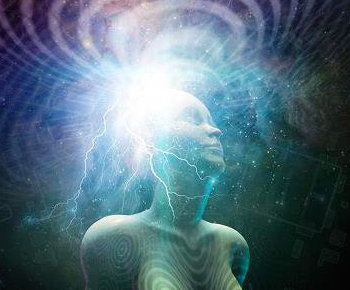The wind gusted all day today, keeping the temperature unseasonably low, and the foothills splendidly clear. The creek still runs cold, clear and fast, and it was good to sit beside it and watch the outer and inner flow.
One takes sittings in nature for their own sake. Doing so, it usually takes a period of passive observation to quicken awareness, end the observer and gather attention.
Consistently however, the busy mind yields and thought falls silent. Then, always unexpectedly, there is a direct perception of beauty and reception of impersonal love.
It’s a strange thing how love comes with stillness of mind. Personal love flows out of caring, friendship, partnership or attachment. But it isn’t the love that infuses nature and the universe, which many philosophers and scientists deny exists.

The evolution of ‘higher thought,’ which gave us the capacity for higher consciousness and impersonal love, is also a tremendous impediment to both beauty and love. Can this cosmic conundrum be resolved?
To find out, we need to ask another question: Why does the movement of psychological thought prevent the perception of beauty and the reception of love?
The basic reason appears to be quite simple. Thought is an instrument of separation. It is an evolutionary mechanism par excellence that gave humans the capability to remove objects, build up knowledge, and develop skills.
Humans operate in our environments very differently than any other animal. ‘Higher thought’ freed us from ecological niche, to which every other animal is bound.
Carried over into the psychological realm however, man mistook the ability to functionally separate as an existential given. We constructed my self, my tribe and my nation, as opposed to your self, your tribe, and your nation.
In other words, separation led to division; division led to conflict; and conflict led to war, which has been codified by the evil ‘global war on terror’ into a purportedly permanent condition of humankind.
Thought is such a powerful adaptation that we mistake the partial realities it is able to fabricate for the actuality of wholeness that underlies it and surrounds us.
True meditation ends the movement of psychological separation and its useless content—the ‘me’ and its memories and conditioning, as well as the rubbish that’s been passed down through the generations through the family.
When the observer and self end, there is just observing. That is apparently rare, even for Buddhists. When a prominent Western Buddhist that I attempted to engage in dialogue recently felt her precious identity beginning to slip, she aggressively began repeating, “Who are you?”
In essence, no one, no thing, I replied, flummoxing her. Though ostensibly a follower of Buddha’s teachings, a Zen-like poem by a 17th century Catholic mystic, Angelus Silesius, is ironically incomprehensible to her:
God, whose love and joy
are present everywhere,
can’t come to visit you
unless you aren’t there.
(I understand the word ‘God’ here to mean sacredness, immanence, the numinous—not a separate deity.)
So does the cessation of psychological thought, in undirected attention to the entire movement of thoughts and emotions in the mirror of nature, always bring the numinous?

One has to experiment with it and find out for oneself.
“Absent extensive mitigating factors or events, we see few plausible future scenarios where significant — possibly catastrophic — harm does not arise from the compounded effects of climate change,” a State Department document just published, which the Trump Administration tried to suppress, says.
Catastrophic climate change and the Sixth Extinction, like mass murder and war, are byproducts of the grossly unintelligent use of higher thought.
Therefore the increasingly pressing priority is transforming human consciousness within us, not first trying in vain to summon ‘political will,’ or scientific knowledge and technological solutions to man’s destructiveness.
Man’s psychological separativeness has very deep roots, but it has reached its logical end. Ending psychological division and the busy mind (and body) is not a personal matter. It has become essential to our survival and growth as a species.
Love is not a feeling; it is a state of being.
Martin LeFevre

